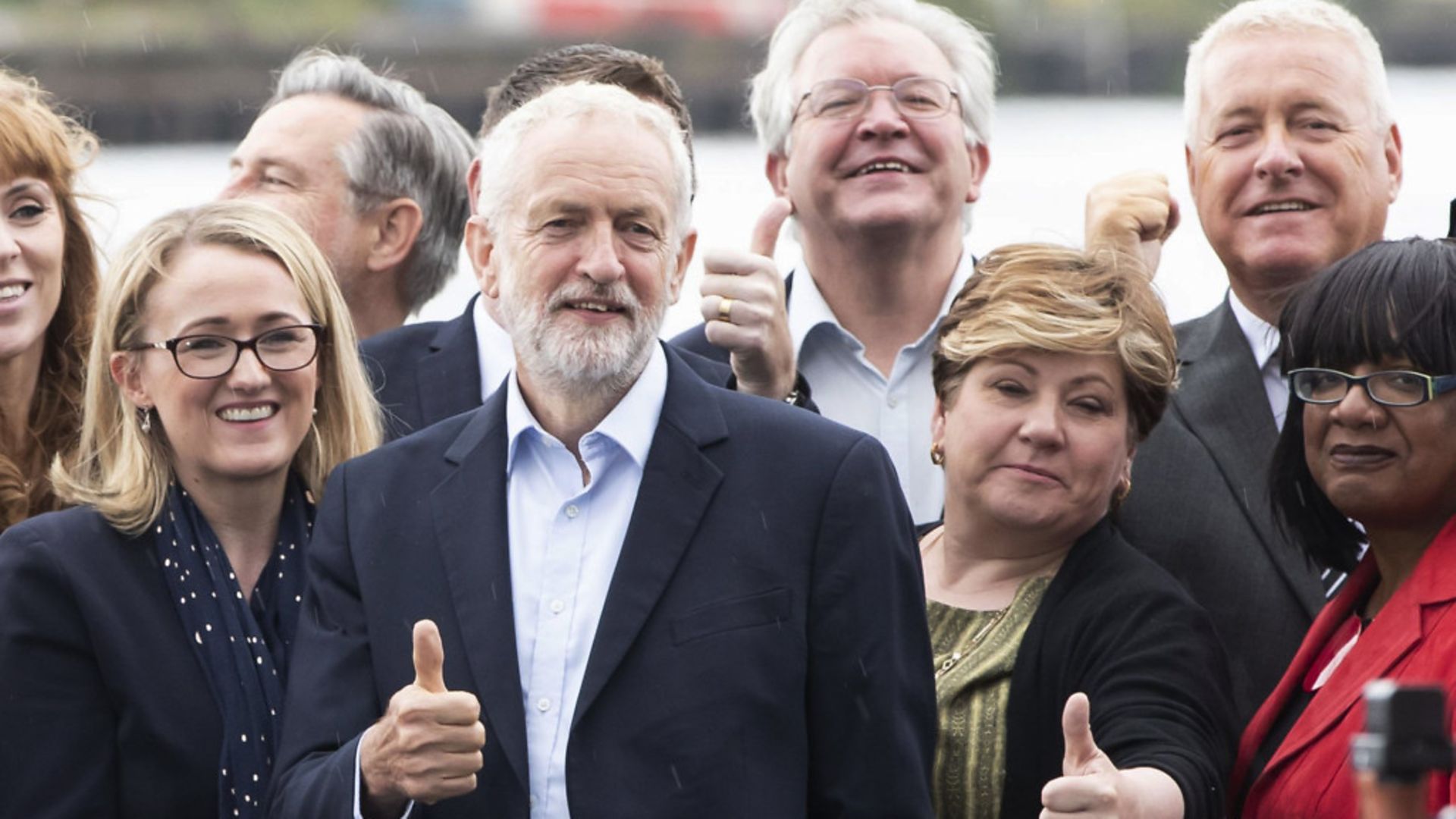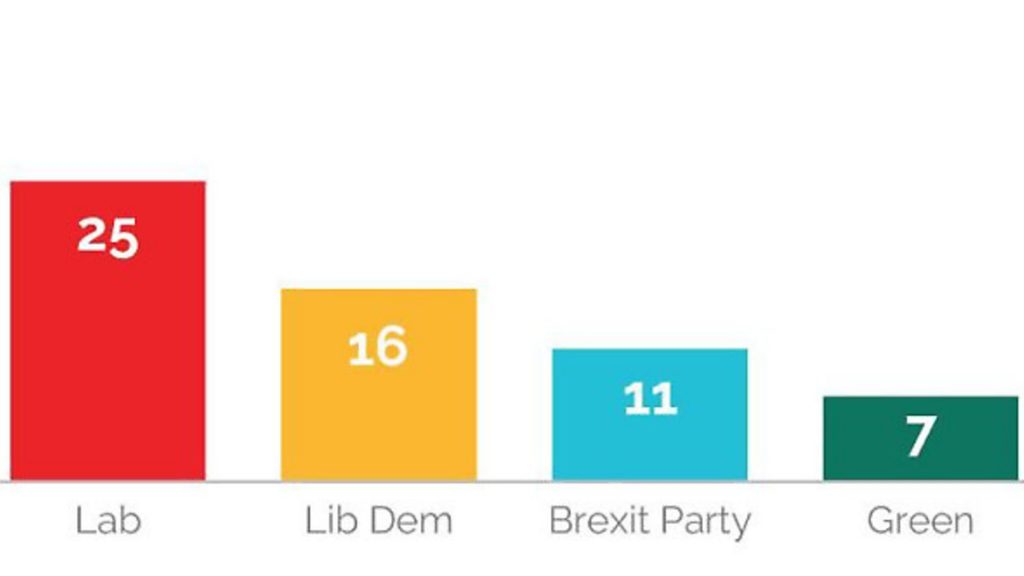
JAMES BALL warns a repeat of Labour’s 2017 election campaign will seal Britain’s fate

In a week of what feels like perpetual round-the-clock political turmoil, it is all but impossible to predict what will happen in an hour’s time, let alone a day or even a week – but for the fact that an election feels imminent.
It may have been called by the time this newspaper goes to print, or may take an extra few days or even weeks, but it is clear that this parliament is reaching its end – the government’s already largely fictional majority is somehow eroded still further, and every party (except perhaps Change UK) wants an election, even if none of them can agree on which terms.
Whenever it starts, this could be an election like few others in living memory. The stakes have rarely been so high, the public so polarised, and the parties so fractious – for the big two, not only with each other, but also among themselves and with their own leaders.
For that reason it’s worth setting out the field and looking at where the advantage lies. Let’s start with the polling, since it’s proven to be the least helpful indicator for most recent elections.
On the top line, this seems to give an advantage to Boris Johnson, with most pollsters figures suggesting the Conservatives would enter the contest with enough of a lead that, if they could hold it – a big if – the voters would deliver the party a majority, one potentially large enough that if the prime minister replaced some rebels with loyalists, he could take the country out of the EU with no-deal, with parliament’s blessing.
The second we dig below the top line, though, this narrative gets shaky. There are many unknown unknowns, such as where the Brexit Party polling will end up and whether Farage and Johnson manage to strike their own deal. We also don’t know how the Liberal Democrats’ improved polling figures will interact with Labour, or many other factors.
It seems likely the Conservatives in Scotland – now without Ruth Davidson – face near-total wipeout at the hands of the SNP, which would reduce the Tories at Westminster by 10. The Lib Dems could hope to take between 10 and 20 Liberal/Tory marginals, leaving the Conservatives needing to pick up huge swathes of seats from Labour to make advances on their current position.
Their obvious hope for this is an election based on Brexit – if they can unite the Leave vote, while the Remain cause is split across other parties, they clearly have a strong advantage across numerous marginals.
An election on these terms suits Leave even more than it may first appear, because of how Leave and Remain voters are split. There are many more constituencies where there is a huge Remain advantage – 75% to 80% Remain – than there are areas with a corresponding Leave advantage.
Because Remain voters are piled high in a small number of constituencies, there are far more with (smaller) Leave majorities. Their voters are better distributed, apparently tilting the field in their favour.
Such logic didn’t help Theresa May in 2017, when she launched into an election campaign it seemed she couldn’t lose, only to find herself having squandered the slim majority she had and ended up with a minority government. But Johnson has a very different operation to May, whose headline pledge in the 2017 manifesto was that she’d take your gran’s home to pay for her social care.
Johnson has a team of campaigners, and they are pushing on the issues they think voters in Labour marginals will love – more police, more prison places, rebuilding hospitals. Anyone who remembers the 2016 referendum knows the team behind Vote Leave knows how to campaign. They also know they won’t let anything so trivial as truth slow them down. This will not be a rerun of 2017.
What needs to happen to hold back the Conservatives, then? There are several things the different parties can do to help. The first is apparently already underway: the parties committed to stopping Brexit have tentatively agreed to form an alliance and not challenge each other in key target seats, with the aim of uniting the Remain vote. If they can hold to this arrangement, this increases their chances of eroding Conservative (and sometimes Labour) majorities. The next stage is trickier. The chances of Labour formally joining such an alliance seem slim to zero. But if Labour and the Lib Dems can resist the urge to attack each other too strongly on the national stage – restricting it to local campaigns in target seats – both can focus their fire on the Conservatives, which is where the key target seats for both parties are concentrated. Too much ire at each other won’t benefit either the reds or the yellows – it will just let the blues hold their seats.
The final stage is a counter-intuitive one: Labour needs to resist the urge to repeat the 2017 campaign, which is so celebrated inside the party and by its activists. Labour’s internal story is that its popular and generous manifesto reversed a terrible poll deficit and saved the party – so why couldn’t it do so again?
The reality is more complex: In 2017, Labour offered huge extra spending, massive investment, free university tuition, and much more for no extra tax for most people… then it lost an election to a party which offered absolutely no giveaways, and threatened its key pensioner voter base.
Johnson will not make that mistake. His campaign will offer voters everything they want. If Labour runs its 2017 playbook again, the fractious anti no-deal coalition will lose and our fate will be sealed.
Dominic Cummings might be trying to fight the election on his own turf, but he’s picked Labour’s heartlands as the battleground – Corbyn’s party needs to tell those areas a better story than Number 10 can.
The stakes couldn’t be higher – who’s going to bring their A-game?










